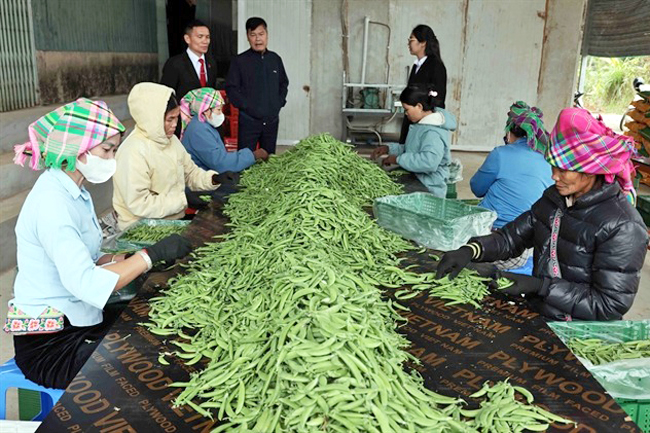ANN/VIETNAM NEWS – With the environmental regulations of Vietnam’s trading partners continually evolving, many businesses are compelled to minimise their production’s impacts on the environment and contribute to a low-carbon economy.
Changes have mainly taken place in large businesses and foreign-invested enterprises with abundant resources, while small- and medium-sized enterprises (SMEs) still face challenges and uncertainty about the ‘green’ transformation.
From the business side, deputy director of Ke Go Co Ltd – a wood production company – Trinh Duc Kien acknowledged that green transformation and sustainable development are no longer just ‘trends’, but have become mandatory requirements in some markets.
“In the wood industry, producers must be able to show that their raw wood materials are certified for sustainable forest management, and proof that the extraction process does not lead to deforestation or forest degradation,” he said. “They must also comply with tightening standards on using environmental-friendly technology that does not emit harmful pollutants during production.” This transformation process is placing significant pressure on businesses in terms of cost, according to Kiên.
According to director of the Institute of Strategy and Policy on Natural Resources and Environment (under the Ministry of Agriculture and Environment) Tran Cong Thang, there are three things SMEs should consider when switching to environmental-friendly production.

They should first clearly understand the mandatory requirements of the markets they trade with, especially in the agricultural sector where environmental and social criteria are becoming increasingly stringent, with traceability being a crucial requirement, he said. For the seafood or fruit sectors, technical barriers are also increasing, requiring clear cultivation area codes and breeding area codes.
Second, businesses need to be proactive and have a long-term vision for adopting new technology, as market policies can change at any time, according to Thang.
“Investing in technology requires significant costs, but if businesses do not have technological transition early, they may lose their competitive edge,” he said.
Third, they should take social responsibility and environmental protection as a priority and place people at the centre of the transformation, providing them with training and new skills that meet the demands of the green economy.
“Shifting from a ‘brown’ to a ‘green’ economy requires changes in both mindset and practices to exploit resources more efficiently and cultivate sustainable values for the future generations,” Thang said.
According to lecturer at the National Economics University (under Viet Nam National University, Ha Noi) Nguyen Quoc Viet, improving the legal framework and financial mechanisms of the government – especially policies on credit guarantees and capital mobilisation – is a key factor in supporting businesses’ sustainable development.
For large-scale projects, the government already has important legal mechanisms such as the Law on Investment and public-private partnerships (PPP), which allow the private sector to contribute to public infrastructure projects and key economic sectors.
But at the micro level, millions of small businesses and farmers still face many obstacles in accessing credit, due to their small loans and lack of collateral, while their demand for capital is large and increasing.
“In this context, cooperative or production-linked models can be a feasible solution that will enhance small businesses’ borrowing capacity through guaranteed mechanisms,” Viet said.
Kien proposed that the government prioritise public procurement of goods and services from businesses that have made substantial investments in green transformation.
They should also review and standardise regulations on the management of wood and forest products’ origins, enabling businesses to prove the legality and sustainability of their raw materials, Kien said.
Non-degradable products such as plastic bags or cups should be banned to increase demand for environmentally friendly products, he said.


